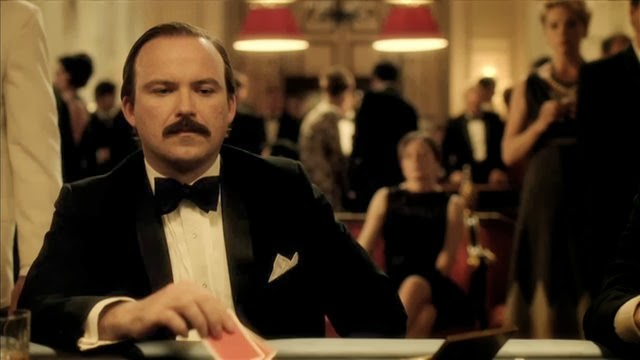Fan-fic! Don't you just love it? Well apparently about half of us do and the other half would rather re-read the originals or, heaven forfend, something entirely new. This is the adaptation of PD James's criminal spin on Jane Austen, pun intended. It seems unlikely that Baroness James woke up one morning possessed with the need to pen a crime thriller set in the fictional world of the Darcys, Bennetts et al, but stranger things happen in the world of business-driven arts these days. (We heard about an agent who requested a crime writer to 'set something in the trenches' with 2014 in mind, and when said writer suggested writing something about Dr Watson - yes, he of Holmes - almost had his arm bitten off in the agent's eagerness to snap up a likely bestseller.) 'Death Comes to Pemberley' sold well, despite a mixed reception, and was an inevitable adaptation for television, with almost as inevitable a slot at Christmas.
As a Dickens/Eliot/Bronte substitute drama, it has a cast of similar calibre and there are enough familiar pointers to reassure lovers of 'Pride and Prejudice'. It's a handsomely mounted production (though we note Elizabeth, chateleine of Pemberley, did seem to spend a lot of time in the same dress) but the murder-mystery was an odd addendum to the light but incisive wit of the original. Death also came rather slowly to Pemberley after all, it was a good half an hour before a murder was established. We'll keep watching tomorrow and Saturday, though unless the murderer is someone unknown, there aren't too many possible suspects.
So now that Death has come to Pemberley, and we've been Lost in Austen, could the time now have arrived (please!) where new adaptations of other classics, or even new writing, appear onscreen? Those who want fan fiction can find endless interpretations of endless classic stories for free on the internet, albeit of variable quality. Seeing a costly, well-written production that tweaks a familiar setting and characters is somehow like warmed-up leftovers: never as good as the original serving.






























.jpg)



